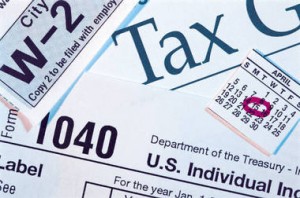State Tax
State Income Tax Filing
Filing State Taxes
Aside from federal tax, a taxpayer must also bear in mind that each state has its rules on state tax. Only seven states in the United States do not collect individual income state tax. These are: Nevada, Florida, Alaska, South Dakota, Wyoming, Texas and Washington. A state may tax individuals, corporations even Social Security benefits, pensions, some products and even services depending on their rules.
Federal, Local, State and other Taxes
There are three levels of tax administration, the federal level, state and local level. Other government agencies may also impose taxes for special purposes. State tax is collected in order to fund the functions of the state. The same goes for local and federal tax. Income tax is collected by the federal government and some states, sales tax from companies are often collected by the state and property tax by the local government.
The
Misconception on Less or No State Tax
Lack of state tax does not always mean less expense. States that do not collect tax have to explore other things to tax in order to compensate revenue. An example of which is New Hampshire which does not collect individual taxes. It only taxes surplus and interest income. In order to gain revenue, it collects the highest property tax in the United States. North Dakota and Oregon tax medical and dental care. The states of Minnesota, Nebraska, North Dakota, Rhode Island, Utah, Vermont and West Virginia tax Social Security income.
The Reckoning of State Tax
State tax is calculated from the same amount of income as federal tax. Without deduction of federal tax from the income, the same way of calculating state tax is done depending on the rate. This only applies for individual income taxes. State tax may also be in brackets like federal tax where the amount taxable depends on until which bracket your total income would fall. But this depends on which state you are in because some states impose fixed taxes. Deductions across states also differ.
State Tax from Other Sources

Aside from corporate state tax, other products and services may also be taxed by a state or excise taxes. State tax may be collected from fuel paid for by the consumers. One product taxed expensively by some states is cigarettes. Some local government units also impose additional tax on it. Finally, retirement income may also be taxed even before you are actually retired. States may include Social Security benefits in the adjusted gross income (AGI) where both state tax and federal tax are computed against.
Breaks and Deductions on State Taxes
You can also have tax breaks from state tax. Deductions are made on your individual income tax when you have dependents. You can also incur sales tax deductions for purchases you made. If you use the Optional Sales Tax Tables provided by the Internal Revenue Service, you may even deduct real estate taxes and even property taxes. For companies whose investment is considered beneficial to the economy of the state, tax breaks may be given as a form of incentive.
The Deadliest Deadline for Tax Filing
Although the Internal Revenue Service collects federal tax, it is the same office that sets the due dates for tax filing of income tax returns, extensions and refund on the level of the state. The due date for returns is last 17th of April this year except for” the states mentioned previously that do not collect state income tax; Virginia, whose deadline is last 1st of May this year; Delaware and Iowa, whose deadlines are on the fourth of April; Nebraska which has the earliest deadline last 15th of April; Louisiana which has the latest deadline, last 15th of May; and Hawaii who collected last 20th of April. The same dates are the due dates for state tax extensions. For those who asked for extensions, the due date for states where this is applicable is on the 15th of October this year except for the following states: Indiana which is on 15th of November; Iowa on the 31st of October; and Virginia on the 1st of November this year.
Tax Filing Without Leaving Your Home
 In the advent of tax filing online, late filing of your tax return is almost unheard of and is reserved for those without the convenience of internet. Filing for both federal and state tax can be done with a few clicks. You can even pay for them online too. These online websites are equipped with a tax calculator where you can also see tax breaks when you are eligible. The Internal Revenue Service calls the system e-filing for taxpayers.
In the advent of tax filing online, late filing of your tax return is almost unheard of and is reserved for those without the convenience of internet. Filing for both federal and state tax can be done with a few clicks. You can even pay for them online too. These online websites are equipped with a tax calculator where you can also see tax breaks when you are eligible. The Internal Revenue Service calls the system e-filing for taxpayers.


